Imperial Lates: Mozzie mating
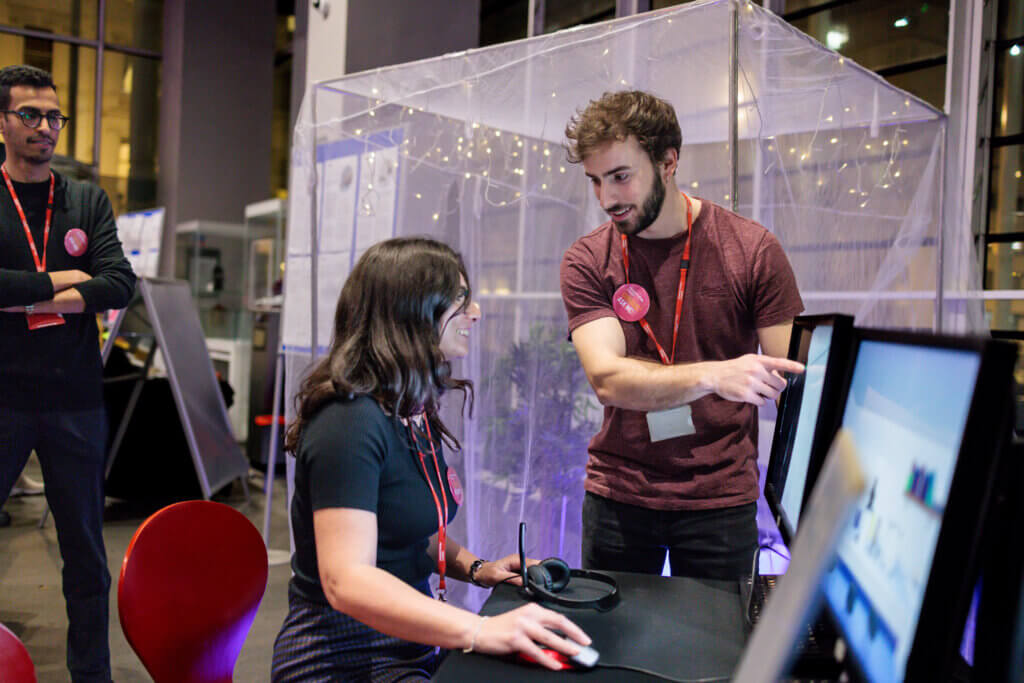

It was a pleasure to be a part of the Imperial Lates: Romance & Reproduction, an event held at Imperial College London. Imperial Lates are fun and social post-work events where the public can interact with the latest scientific developments at Imperial College London, centred around a new theme for each evening.
Last week’s event delved into attraction, intimacy and procreation whilst exploring the mysteries of human reproductive health and animal sexual selection through creative workshops, thought-provoking discussions, and interactive exhibits.
The Crisanti Lab held a stand named “Mozzie mating” featuring various communication tools, such as our card game “Mozzie Drive”, the “Swarm” sonification, live mosquitoes and larvae allowing visitors to come face-to-face with mosquitoes and find out from our scientists how their mating behaviour can be harnessed to eradicate disease.
Exploring gene drive through sound
In 2018, the Target Malaria team at Imperial College London published a landmark paper in Nature Biotechnology. The study demonstrated how gene drive mosquitoes successfully suppressed a population of wild-type malaria mosquitoes, marking a significant milestone for gene drive technology as a tool for malaria elimination.
In collaboration with music composer Jamie Perera, a sonification was created using this landmark paper. Jamie transformed data from the gene drive cage trials into the sound piece called “Swarm”. Read the blog by Jamie here. This artistic collaboration earned the project the Digital Communications Bronze award for Disruptive Communication.
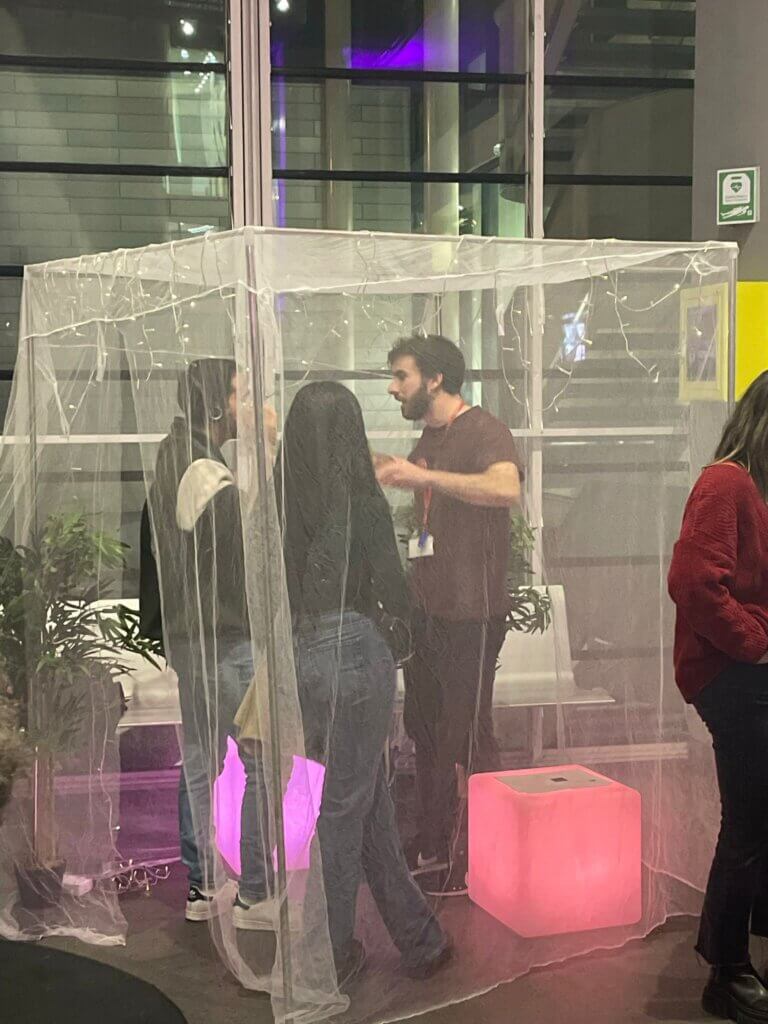
Visitor listening to sonification.
Science communication through a card game
Visitors had the opportunity to play our card game called Mozzie Drive. This game, which was designed by two our researchers Dr. Ace North and Dr. Katie Willis, demonstrates how gene drive mosquitoes could serve as a vector control tool to reduce populations of wild-type malaria mosquitoes. The game is available to download for free on our website and the rules are live on our YouTube.
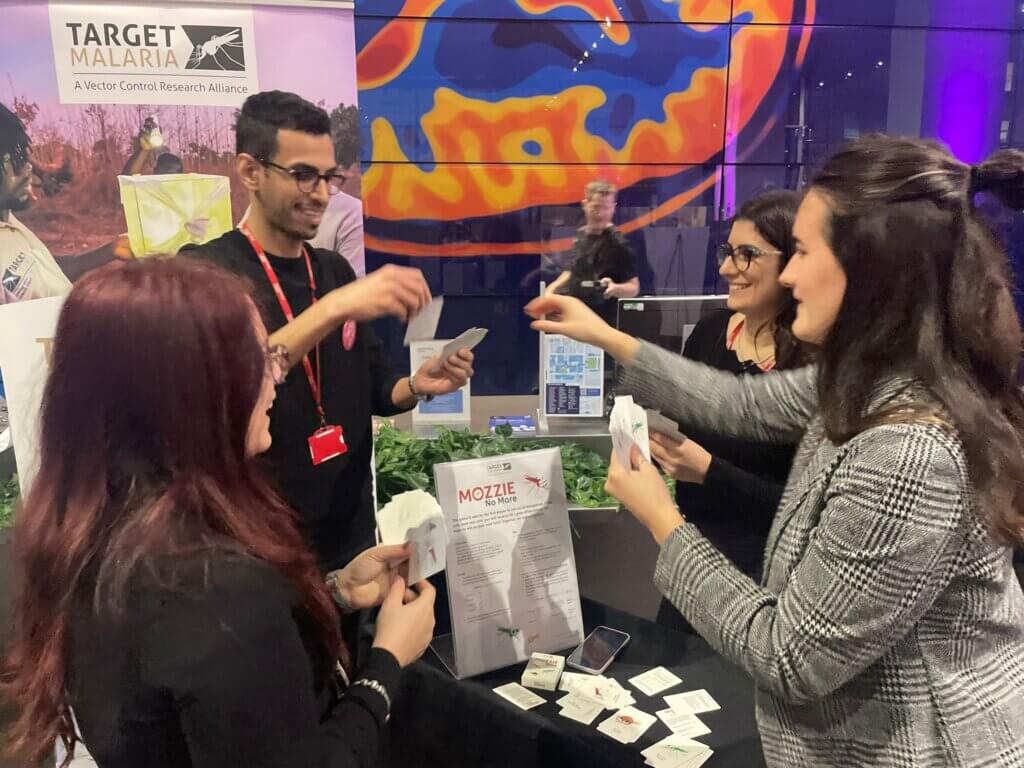
Crisanti Lab members playing “Mozzie Drive”.
Face-to-face with live mosquitoes
Visitors had the chance to meet wild-type mosquitoes (safely within in a cage!). Our team highlighted the distinctions between male and female mosquitoes, and visitors could gauge the mosquitoes’ interest by placing their hands against the cage’s exterior and observing how many mosquitoes gravitated towards them.
Our stand also featured a table showcasing the various life stages of mosquitoes, from larvae to pupae.
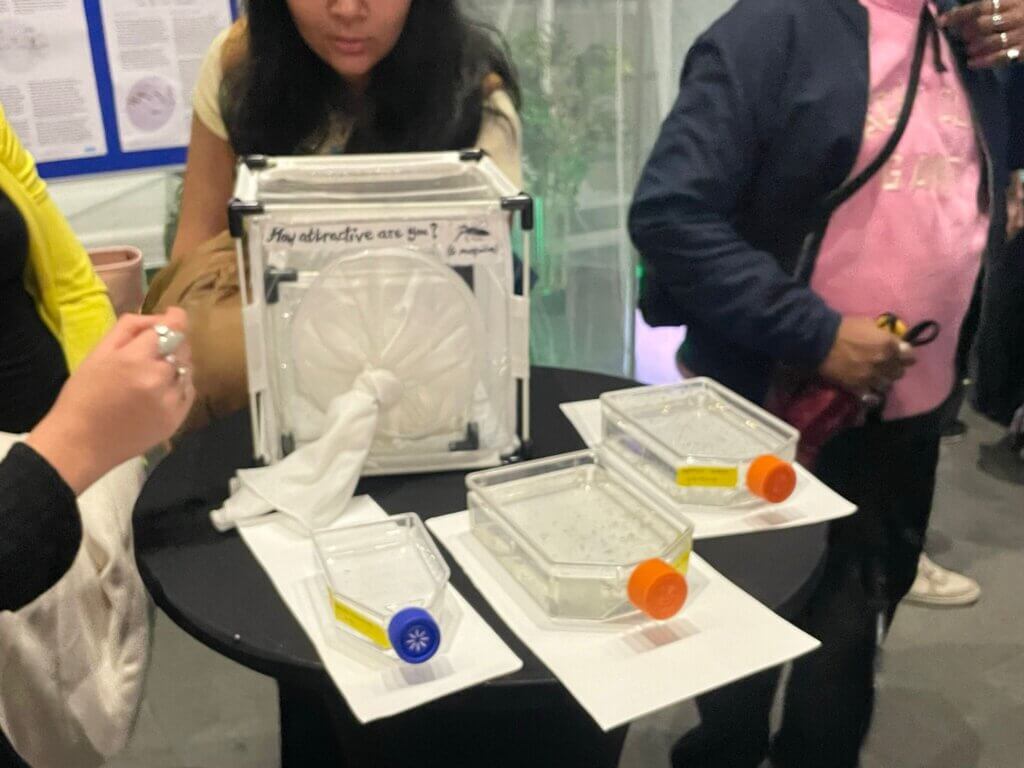
Table showcasing live mosquitoes in small cage and the various life stages of mosquitoes, from larvae to pupae.
Microinjection video game
This event was the first time the team was able to trial the new microinjection game we are developing. The game is signed by Michael Marston, a British video game developer, and Louise Marston, one of Target Malaria’s senior research technicians at Imperial College London. The game currently allows the player to enter a simulation laboratory, which has been modelled after our real laboratory, and play a module to experience the process of microinjection. Microinjection is a key part of our research and science. It is a difficult process that necessitates skills and patience to sort out embryos and then inject them with a DNA solution. We have a blog which outlines the process written by Louise Marston, who is our top microinjector of mosquito embryos at the Crisanti Lab. Read the blog here.

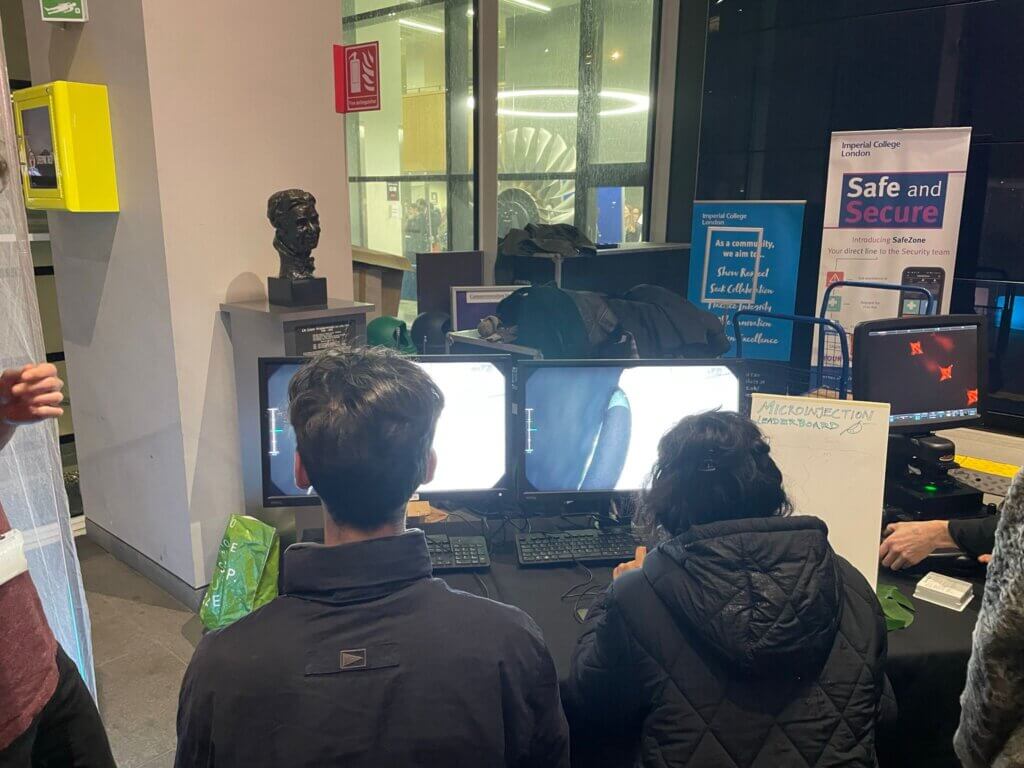
Visitors playing our microinjection game.
The event proved a great opportunity to showcase the scientific work and science communication projects carried out by Target Malaria at Imperial College and with our partners. Engaging with members of the public, answering their questions and seeing their interest in our research was rewarding to our scientists.
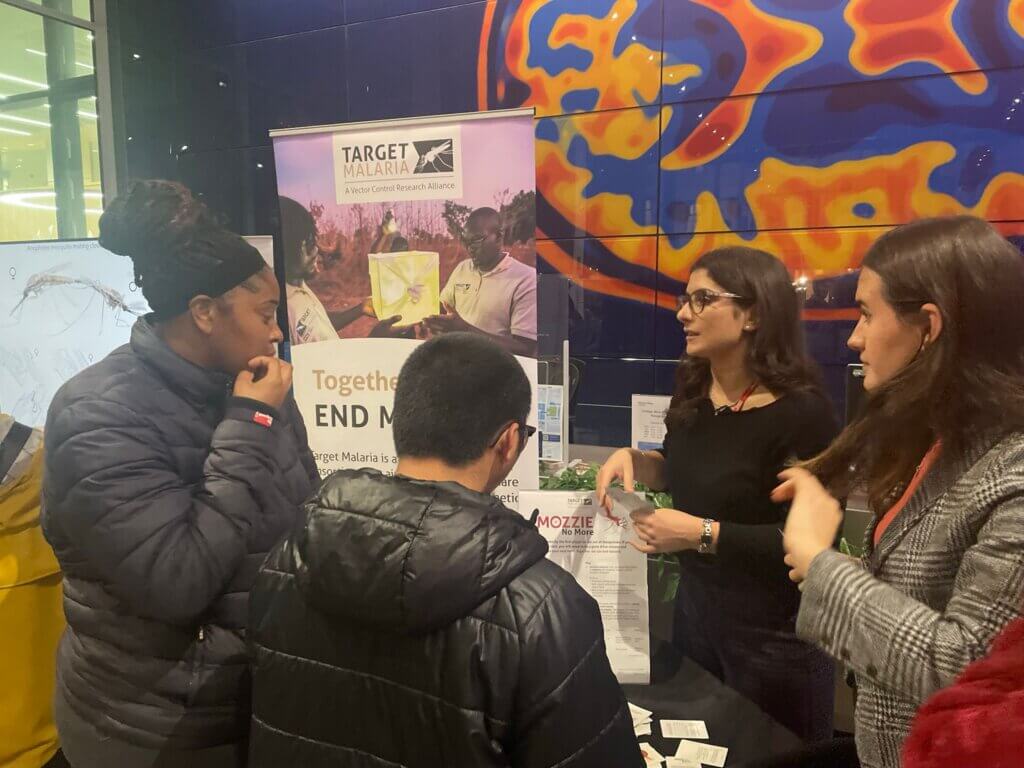
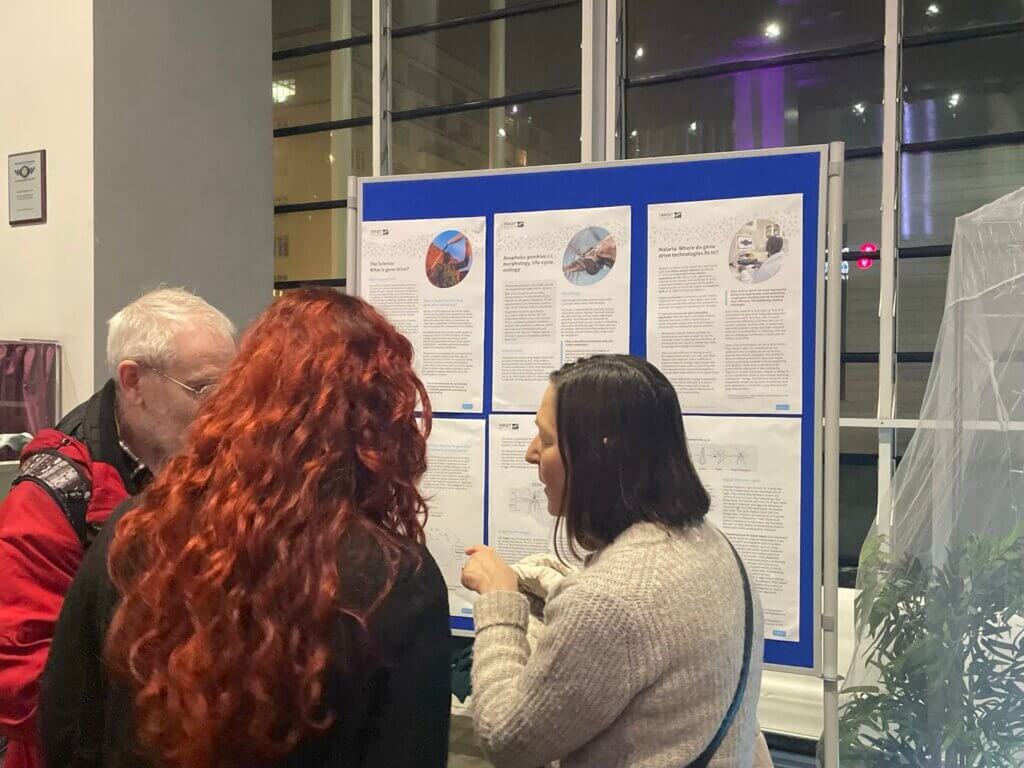
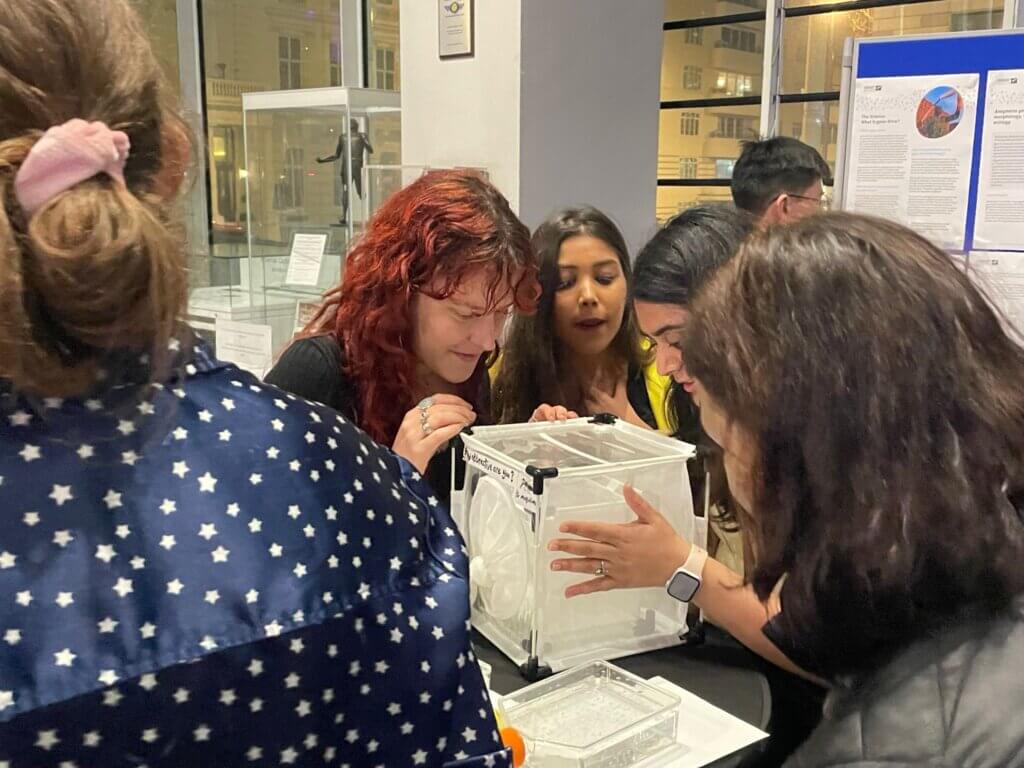
Photos from Imperial Lates.
